Aunt Jemima Just Got a New Name and Logo
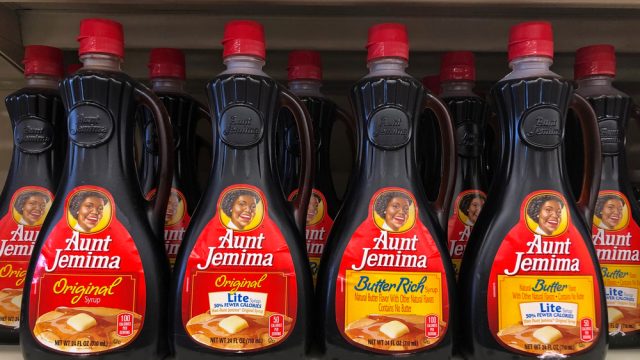
Throughout 2020, many companies started reassessing their identities and practices as a result of the Black Lives Matter movement. For some, that included finally addressing the racially insensitive elements in their brand names or logos that have been used for decades or even centuries. Now, almost eight months after plans for a brand overhaul were announced, Quaker Oats is revealing a new name and logo for their famous Aunt Jemima line of breakfast products after more than 130 years. Read on to learn about this historic change, and for more staples of your childhood that have had a reckoning, check out 10 Disney Classics That Have Been Called Out for Racism.
Aunt Jemima will change its name to Pearl Milling Company.
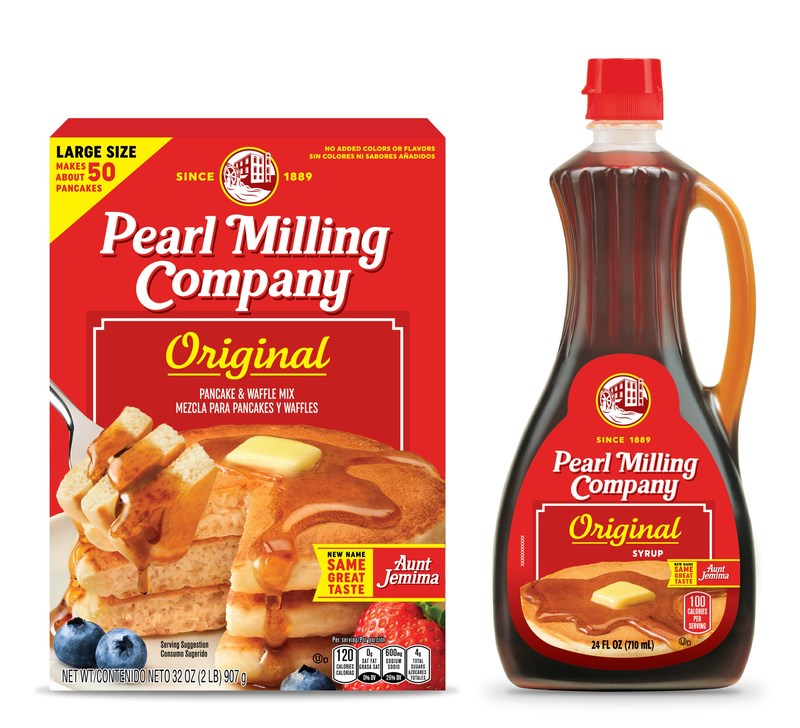
On Feb. 9, Quaker Oats announced that Aunt Jemima would be renamed Pearl Milling Company, replacing the original brand name and logo that had been in use for 131 years. The rebranding comes eight months after the company decided to discontinue the use of Aunt Jemima in the brand’s imagery and name due to its racist roots.
Quaker Oats parent company PepsiCo. announced that the redesigned packaging for the brand’s pancake mixes, syrups, cornmeal, flour, and grits products bearing the new name and logo would arrive on shelves in June 2021. Products with the Aunt Jemima name—but with packaging that has been stripped of the racially insensitive character image—will still be available in stores up until then.
The rebranding removes racist references from the company’s namesake and imagery.
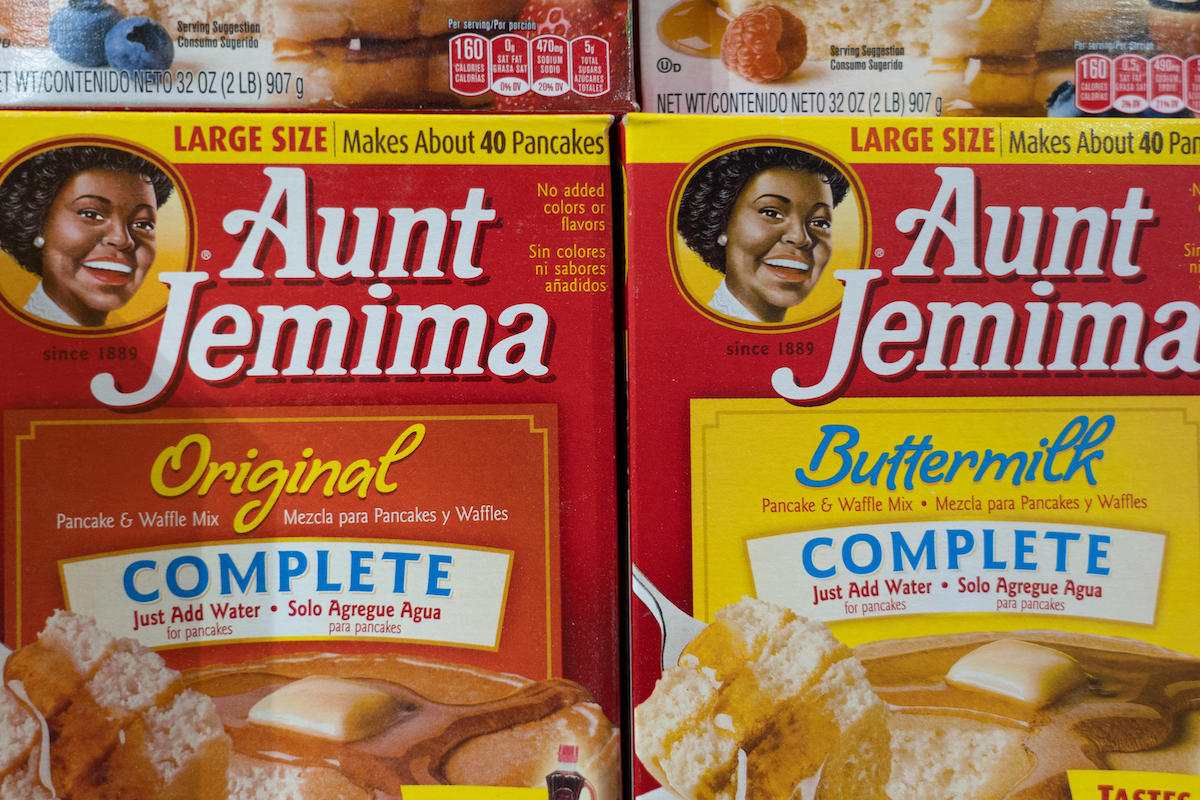
The change is the result of a decision made by the company in June to acknowledge the brand’s namesake as a reference to the historically racist character imagery of the “mammy.” This character—an older, larger Black woman—was a staple of minstrel shows of the 19th century, and usually dressed in a headscarf and polka-dotted dress that were featured in the previous versions of the breakfast staple’s logo. In fact, the brand even got its name from a minstrel show song called “Old Aunt Jemima,” which was sometimes performed by a white singer in blackface.
“We recognize Aunt Jemima’s origins are based on a racial stereotype,” Kristin Kroepfl of Quaker Foods North America said of the change in June. “While work has been done over the years to update the brand in a manner intended to be appropriate and respectful, we realize those changes are not enough.” And for more words rooted in racism you may not know about, get familiar with these 7 Common Phrases That You Didn’t Know Have Racist Origins.
Calls for the company to change have been made for decades.
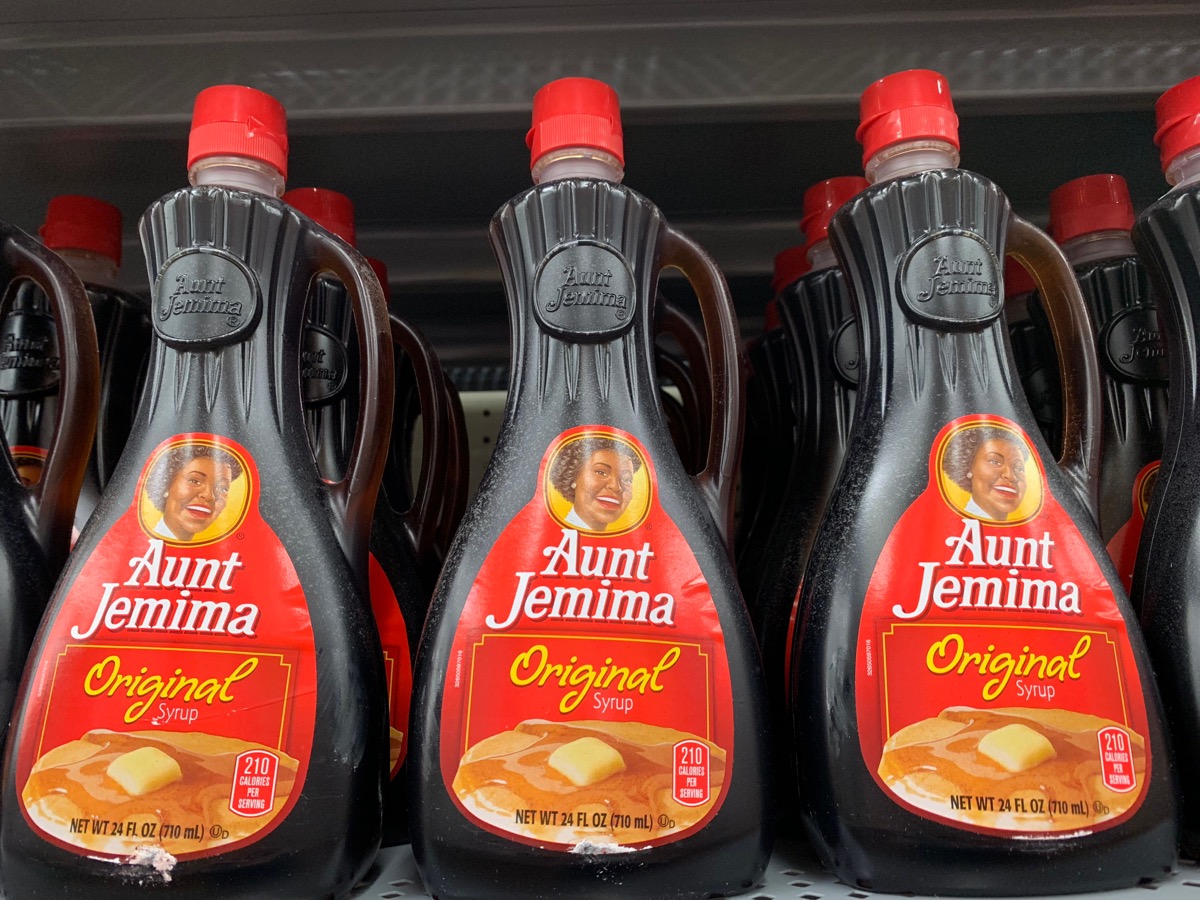
The rebranding comes after decades of the company’s shuffling to slowly distance themselves from the name’s origins, including modernizing the label imagery. But historians and many consumers have long pointed out that the brand’s connection to racism is inescapable.
“Brand managers have been aware of that for years and have tried, largely through incremental updates to the character’s image on the packaging, to modernize how she is seen. The headscarf is gone, they’ve added a lace collar, pearl earrings. But the effect, because of the name, is the same,” James O’Rourke, professor at the University of Notre Dame’s Mendoza College of Business, told the Associated Press in June. And for more news on developments like this delivered right to your inbox, sign up for our daily newsletter.
Other racially sensitive rebrandings have followed suit.
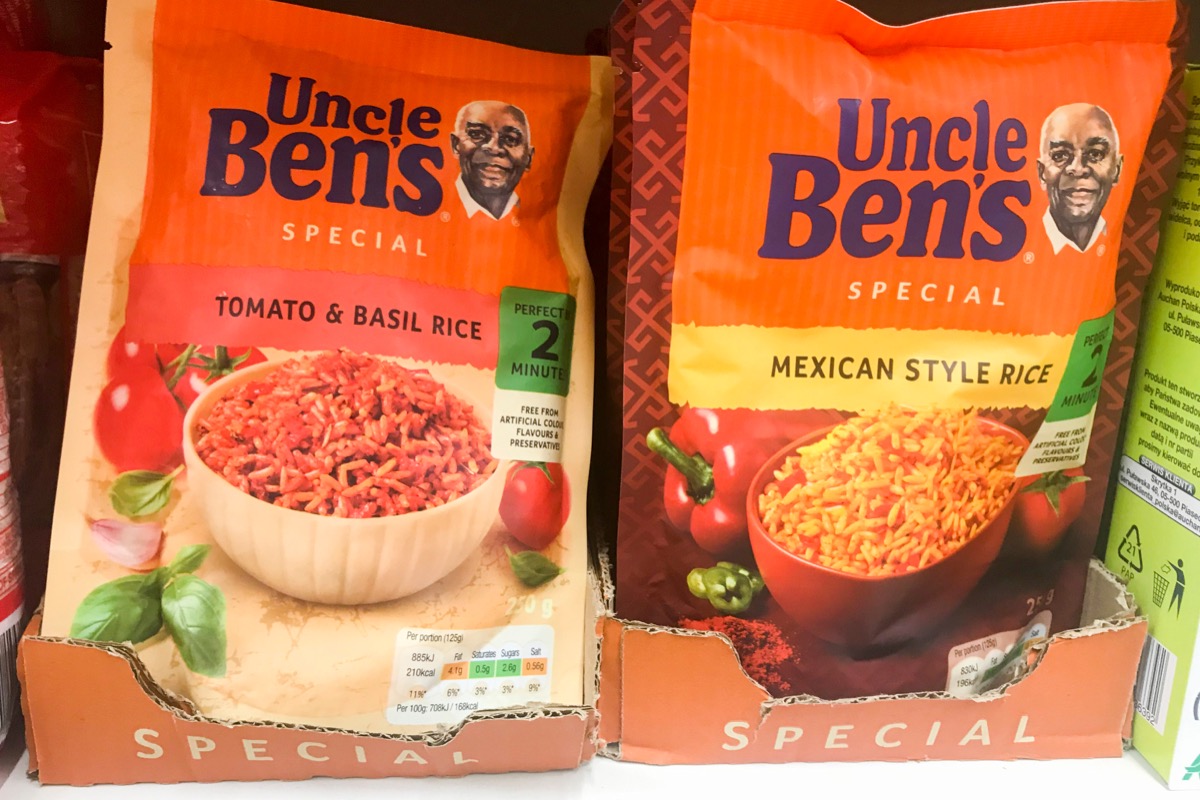
Quaker Oats’ announcement to rebrand Aunt Jemima almost immediately sparked an effort by other companies to remove racially insensitive elements from their product names and logos, including Mrs. Butterworth’s, Eskimo Pie, and Cream of Wheat, USA Today reports. Most notably, Mars announced that they would be revamping the name and imagery of the Uncle Ben rice brand within hours of the Aunt Jemima announcement.
In September, Mars Inc. announced that the 70-year-old brand would be changing its name to Ben’s Original, dropping the pejorative “uncle” historically used by white people in place of actual titles for Black people. “We listened to our associates and our customers and the time is right to make meaningful changes across society,” said Fiona Dawson, global president for Mars Food. “When you are making these changes, you are not going to please everyone. But it’s about doing the right thing, not the easy thing.” And for another brand making some changes, check out Disney Admits These Movies Have Had a “Harmful Impact” With New Warning.